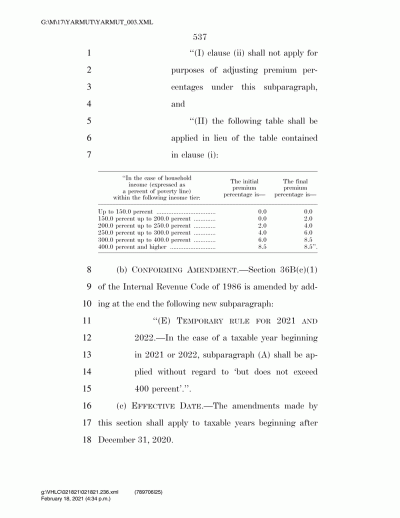A little off topic (Sorry), but why wouldn't they just re-implement the mandate or make it $1 to eliminate the ACA lawsuit currently in the SCOTUS?
I recall reading that there is a plan, through executive order, to undo the changes that got rid of the mandate.
The mandate was never removed - it still exists in the law. They didn't get rid of the mandate, so it can't be re-implemented. The penalty for not complying with the mandate was lowered to $0, but the mandate itself is still in place. I mentioned the $0 mandate penalty earlier in this thread. If they had simply removed the mandate, we wouldn't be in limbo with the court right now, but that didn't happen. There's a big lawsuit that SCOTUS heard in early November regarding the constitutionality of the mandate since there is no penalty associated with it anymore. We are still waiting on a ruling from the Supreme Court, which we will get no later the June but possibly sooner.
https://www.healthaffairs.org/do/10.1377/hblog20201111.916623/full/
Last edited:


